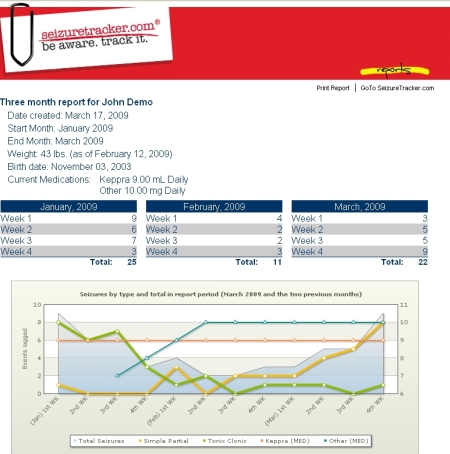May 3rd, 2010 by BobDoherty in Better Health Network, Health Policy, News, Opinion, Research
1 Comment »

I just got back from a wonderful week in Toronto, Canada. No, I wasn’t up there to take tips on how to impose socialized medicine on an unsuspecting public, notwithstanding what some of you may incorrectly-surmise about my political leanings.
Rather, I was there to attend ACP’s annual scientific meeting, during which I had the opportunity to serve as faculty for three separate scientific sessions that discussed the impact of the new Patient Protection and Affordable Care Act (PPACPA) of 2010 on internists and their patients. Several hundred ACP members attended these sessions.
And guess what? Rather than encountering doctors who were angry at the new law and ACP’s support for it, I instead found an engaged and curious group of internists who are looking at health reform in a reasoned, measured and open-minded way. Read more »
*This blog post was originally published at The ACP Advocate Blog by Bob Doherty*
April 29th, 2010 by Medgadget in Better Health Network, Health Tips, Research
No Comments »

According to a doctoral thesis to be presented by Jan Bergström at the Karolinska Institutet in Sweden, cognitive behavioral therapy (CBT) via the Internet is just as effective in treating panic disorder as traditional group-based CBT. It’s also apparently efficacious for the treatment of mild and moderate depression.
Access to conventional CBT is limited in Sweden, so an Internet-based CBT was developed in which the patient undergoes an Internet-based self-help program and has contact with a therapist by email. Read more »
*This blog post was originally published at Medgadget*
April 29th, 2010 by DrWes in Better Health Network, Health Tips, Opinion, Research
No Comments »

I can’t read for any length of time in a moving vehicle — it makes me nauseous. This is because in order for the body to determine where it is at all times, the brain combines visual information, touch information, inner ear information, and internal expectations to judge its position in space.
Under most circumstances, the senses and expectations agree. When they disagree, there is conflict, and motion sickness can occur. In my case with reading in a car, my eyes that are fixed on the written page tell my brain that I am still. However, as the car goes over bumps and accelerates or decelerates, my inner ear disagrees resulting in my brain activating the nausea center and causing motion sickness.
Well, the same thing might happen with 3D TV. Read more »
*This blog post was originally published at Dr. Wes*
April 29th, 2010 by Felasfa Wodajo, M.D. in Better Health Network, Health Policy, Opinion, Research
No Comments »

 Check out John Halamka’s post on some of the excellent work one of the workgroups convened by the feds is doing. Here’s the complete quote:
Check out John Halamka’s post on some of the excellent work one of the workgroups convened by the feds is doing. Here’s the complete quote:
Imagine if every EHR could send data to every other EHR using a simple addressing mechanism like email, a consistent REST implementation or a well described SOAP WSDL. Interoperability would follow rapidly because novel packages of data will be sent to support real business needs without any barriers of how to get the data from endpoint to endpoint.
The “addressing” part of the NHIN (Nationwide Health Information Network) Direct specifications is almost complete. The “implementation” workgroup is part of the fast moving NHIN Direct project which is developing lightweight standards for machine-to-machine communication of medical information. Read more »
*This blog post was originally published at a few thoughts from a tumor surgeon*
April 29th, 2010 by Berci in Better Health Network, Health Tips, Opinion, Research
No Comments »

 I’ve written about several sites that let users track parameters related to their health management.
I’ve written about several sites that let users track parameters related to their health management.
Here’s another example, SeizureTracker.com, that tracks seizure activity, appointments, and medication schedules through a simple calendar interface. You can download printable seizure logs or receive customized reports which include graphs comparing seizure activity and medication dosages. Read more »
*This blog post was originally published at ScienceRoll*






 Check out John Halamka’s
Check out John Halamka’s 








